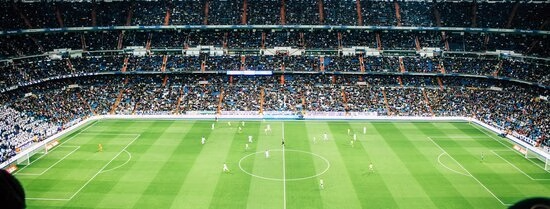Gijsbert Oonk (Erasmus School of History Culture and Communication) has received a 400K Erasmus + KA-2 grant to unlock the potential of football history and football stories for history education and in football heritage (football musea). The project is a follow up of our earlier ‘Football Makes History I’ project. We are a consortium of educators, researchers, heritage professionals and civil society organisers who have worked together since 2018, in various formations, to create a platform called Football Makes History. Within the new Football Makes History project Eintracht Frankfurt Museum, Euroclio, the Reinwardt Academy, Fare Network, Erasmus University, and film producer Stefano di Pietro are working together to unleash the protentional of football history in order to foster social change and social justice.
Some would say history is just one damned thing after the other, that it should be put to rest in the past and that bygones should be bygones. These people are not necessarily wrong, but in an ever-complex world of globalised societies and rising exclusivist identity-politics, the stories we tell ourselves about the past help us define ourselves in the present and orient toward an unpredictable future.
Some would say football is nothing more than 22 people chasing a ball around a pitch for 90 minutes. Also those people are not necessarily wrong, but history is made up of whatever people have come to value, and certainly football – a game played and watched by billions for over 100 years – seems highly valued.
We would say that football history is made up of millions of stories, of individuals and communities, of movements and processes, which can open doors to the conversations we need to have in the present, about the future. And there are many ways in which this past is collected, preserved and contested as heritage.
Through the stories of football we could understand the concept of diversity, the difficulties women had to face, and still face, to reach equality, the complexity to embrace diversity and the stories of migrations that in the world of football are the stories of the local players. These are the people students love and they meet on Sundays in their local stadium but that represents a universal message that needs to be uncovered and spread, especially if this can happen through the voices of the younger generations of women and men.
The overall mission of this project is to unleash the potential of football heritage to contribute to social change and historical consciousness through local educational partnerships among football clubs and schools.
We gather historians, educators, heritage professionals and inclusion activists working in education, football and history and heritage research to co-design, test, deliver and upscale educational interventions to enable football clubs and their museums to be opportunities for young people to learn and take local action to build a more inclusive and peaceful future.
Football is a game where heated rivalries and conflicts are present. On the other hand, football is a place where people from different backgrounds work together towards a unique goal. Could football museums and schools work together to use their resources to teach history and navigate into a difficult past(s)? Would these experiences have an emotional impact on the students, even beyond the historical facts?
Our project is designed to broaden and deepen the work of the existing Football Makes History platform. We want to mobilise school students to work with football clubs at the local level. These unique local football (his)stories identified, narrated and presented by the students raise awareness about diversity, inclusion and universal values of human rights and democracy at the global level. A project that is a proof of concept to test the possibility of using football and innovative multimedia teaching material co-designed with students to increase the cultural but also emotional sensitivity of students through history education inside and outside of the classrooms.
- Research existing local football club-school partnerships, monitor the development of the program and evaluate the effectiveness of the project results.
- Challenge school students and club heritage staff to uncover local conflicted histories that have a strong connection with their local football communities.
- Support football club museums to engage with local education stakeholders and become a space for heritage education.
- Support teachers to replicate effective local approaches to co-design and storytelling in partnerships with football club museums.
- Sustain and grow the European network of educators, historians, activists and football workers gathered in FMH, and together develop public awareness that inspires action on/with football heritage.
By implementing these objectives in 2022-2025, we hope to make progress in realising our vision, which is that football heritage, as it is cherished, developed, experienced and developed at the local level, has a unique potential to contribute to social change and young people’s historical consciousness through local educational partnerships among football clubs and schools. The mission of the consortium is to identify and build on this potential.
- Football clubs in Europe – from grassroots club in local villages to the major professional clubs and organisations – will recognise how the sense of local belonging and loyalty they foster among (football) communities can be used to face the past, present and future, in new educational and collaborative ways - mainly by considering themselves as heritage communities and develop (new or existing) museums in accordance.
- Schools in Europe work together with (local) football clubs (and their museums) to foster and build on this potential in a way which directly addresses curricular learning outcomes, subject areas and is feasible within the time and space constraints.
This project is one strategic step toward that bold desired impact, and will pave the way for the consortium to realise its dual ambition of enabling schools and clubs to move forward through local projects.
- Researcher
- More information

